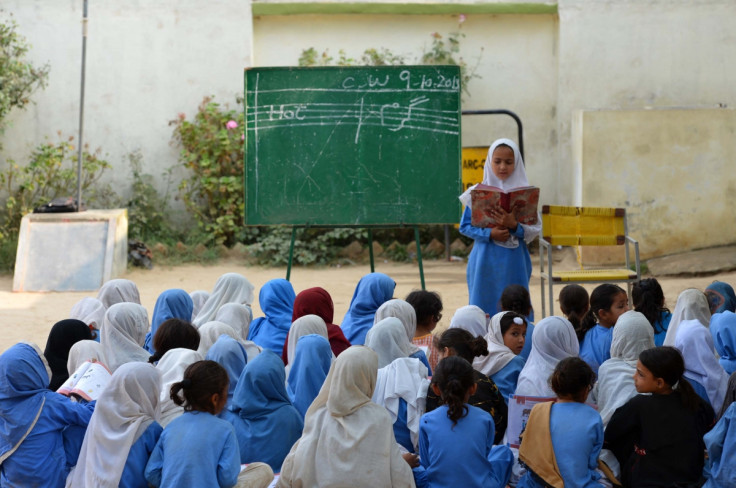International Day of the Girl: Ending violence against girls will restore their right to education

Global communities are preparing to mark the International Day of the Girl, a day observed by the United Nations to promote girls' rights, highlight existing gender inequalities between girls and boys and address the various forms of discrimination girls face every day. One of the greatest barriers to girls' full participation in society, through a good quality education, is pervasive violence.
Violence is still one of the biggest problems holding girls back from achieving their full potential. Worldwide, 62 million girls do not go to school and violence is one of the main factors. An estimated 150 million girls around the world have experience sexual violence – much of which takes places in what are believed to be in schools.
Recent research commissioned by the charity Plan International found 50% of girls said they felt unsafe using toilets in school, while 47% said they felt unsafe on their way to school because of the threat or fear of physical, sexual or verbal abuse. Since 2009, there have been almost 10,000 attacks on places of learning – with hotspots in Pakistan, Nigeria, Colombia and Syria.
For millions of girls globally the right to a good education is denied. There are extreme examples of this – such as the shooting of Malala Yousafzai by the Taliban in Pakistan and the abduction of hundreds of schoolgirls in Nigeria. For those denied an education, they miss out on the opportunity to thrive, become independent, build self-confidence and become economically self-sufficient – essential factors in breaking the cycle of poverty and inequality in communities worldwide.
"We know that by educating a girl, by taking care of her health and feeding her properly, the economy of her village will improve," says Anne-Birgitte Albrectsen, CEO of Plan International. "This is because she will marry later, have fewer children, and those children will be healthier. Imagine this phenomenon widening out from the village to the town, and the town to the city, over generations and for thousands of girls, and you can see that gradually, improving girls' education across the globe will have a huge impact of the national and global economies."
The benefits of keeping girls in school are far-reaching as drivers of social and economic development. According to Unicef, adolescent girls that attend school and delay marriage and childbirth are less vulnerable to diseases, including HIV and Aids, and acquire information that lead to earning power.
"Research tells us that one extra year of secondary education increases a girl's eventual income by 10 to 20%. Investing in girls ignites a future multiplier effect. The World Bank reports that young women are likely to reinvest up to 90% of their income in their families and communities," says Albrectsen. "The Millennium Goals economist Jeffrey Sachs said that the status of women and the economy are directly related – where one's flourishing, so is the other; where one's in the ditch so is the other. And I believe this to be true."
The figures speak for themselves. India, which has nearly four million adolescent mothers, annually loses $383bn (£249bn) in potential lifetime income. In Nigeria, if women had the same employment rate as young men, the country would gain $13.9bn annually. In sub-Saharan Africa, investing in girls' education could boost agriculture output – and therefore crop yields – by 25%, according to the International Food Policy Research Institute.
Girls have the right to a safe, educated and healthy life, which translates into empowerment to advance gender equality and social and economic involvement. To ensure this, we have a duty to tackle the root causes of violence by combating discriminatory attitudes among boys and men, giving girls who experience violence a voice and by educating teachers and social workers worldwide to better deal with cases of abuse. Greater education on early marriage, early pregnancy and gender-based violence is vital.
"Now is our chance to give girls the future they deserve," Albrectsen said. "The next few years are crucial to bringing about historic and significant transformation for young people."
The International Day of the Girl is observed on 11 October.
© Copyright IBTimes 2024. All rights reserved.






